“With the pandemic we are left without a job. We are a group of women who suffer violence.” “Mujeres de la Tierra” is a gastronomic project of 6 people who experience domestic violence to varying degrees. The collective seeks to help and accompany women who suffered domestic violence to give them economic autonomy by selling dishes prepared with corn.
Mujeres de la Tierra, Mujeres de la Periferia is a collective of six women who live in Santa Ana Tlacotenco, Milpa Alta – the youngest is 30, the oldest 55-. The project was born in May 2020, explains Rocío – of whom we will not give her last name because she asked for it -: they sell food that they prepare with corn and other ingredients that they grow such as beans, nopales, quelites, and more from this delegation. They are delivered at different points in Mexico City, on Wednesdays and Fridays of each week.
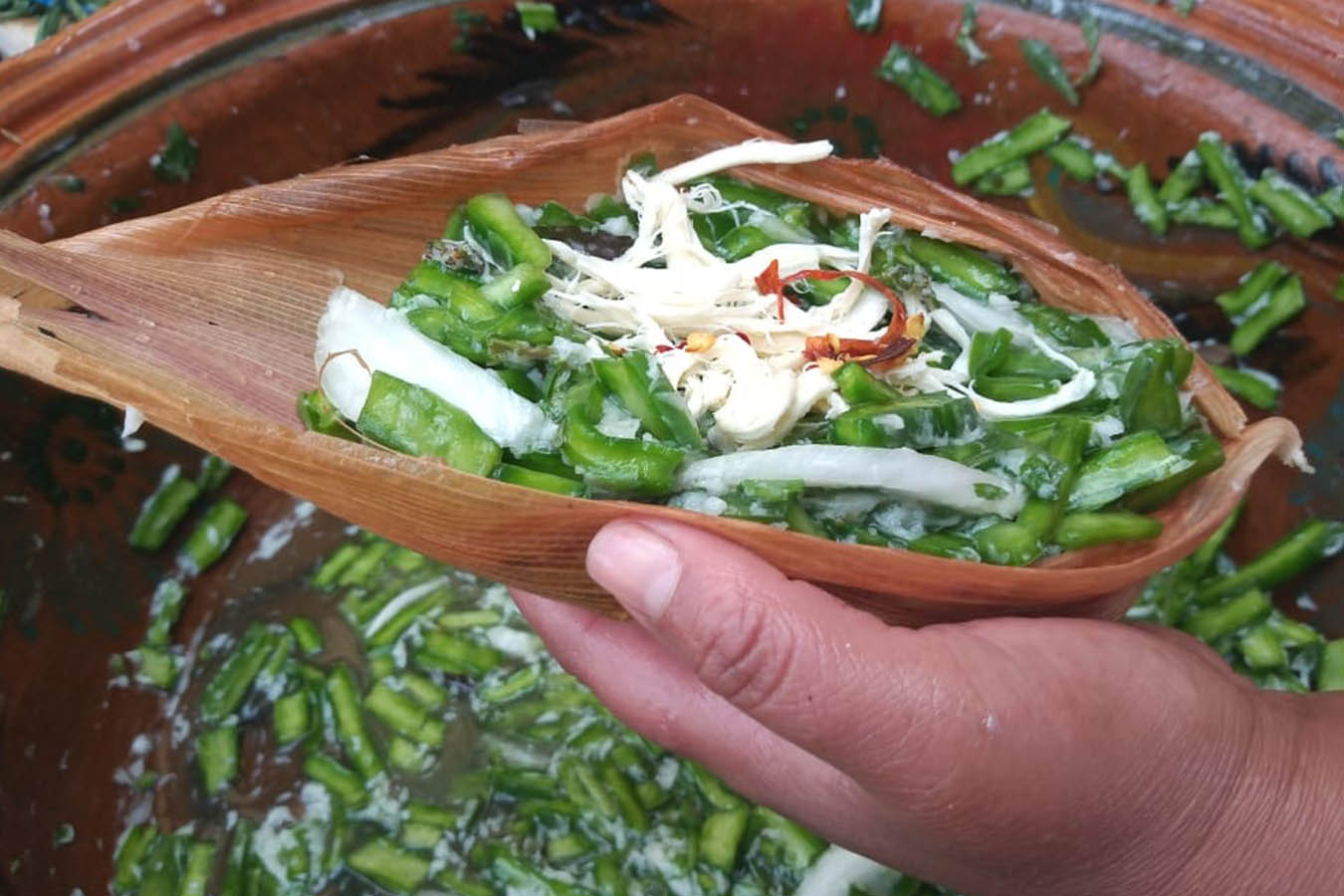
Chío, as they like to call her, narrates that this initiative arose with the objective that each member generates income and with this can have economic independence: each one experiences situations of intrafamily violence in their homes – which intensified with the confinement caused by the coronavirus – and they could not leave their aggressors because they did not have space or money of their own to support themselves or their children. So they started cooking together and took the stove as a symbol of struggle and resistance; they took the cultivation as a standard in order to create a collective and safe space, of freedom and learning.
“All of us who participate here know how to make tortillas, we know how to put the nixtamal. We know about sowing, we know about violence and that is what unites us. We talked about these ugly and sad situations. We can’t find a space where they can hire and pay us, so we create something of our own based on what we know how to do. It arises from embracing our knowledge and taking it as a way of saying: ‘I’m going to do it because I no longer want to be next to a person who hurts me,’ ”she shares.
KITCHEN AS A SYMBOL OF STRUGGLE
During confinement, records of violence against women in the home increased by 60 percent in Mexico, according to figures from the United Nations (UN) Women. In addition, others had lost their jobs due to the pandemic, which made their context more complex.
With this group they can have a break from their circumstance: they meet at the house of some colleagues on Tuesdays and Thursdays early to prepare the orders, but the work starts earlier. They end at night, and although they are many hours invested, they live together, eat together, and are united, says Chío.
“There is a process of listening, of accompaniment. If one of the companions one night before was verbally, physically, or psychologically assaulted, there is listening and we all understand each other and give each other alternatives, we can go to draw up a report or support. It is a day of work, yes, but it is also a day of sharing joys and pains. In this space the act of ‘joining’ is noticeable, because it is what we are doing, we are ‘joining’ a cause, a struggle, which has taken the kitchen as a symbol ”, she adds.
Most of them are not originally from Mexico City nor did they study. Chío, who is an educational psychologist from Puebla, teaches others to read and write.
Rural women are key agents in achieving the economic, environmental, and social changes necessary for sustainable development, but their limited access to credit, health care, and education are among the many challenges they face, UN Women notes. Precisely, every October 15 is commemorated the International Day of Rural Women, in order to raise awareness about their struggles and needs, as well as the fundamental role that they play in society.
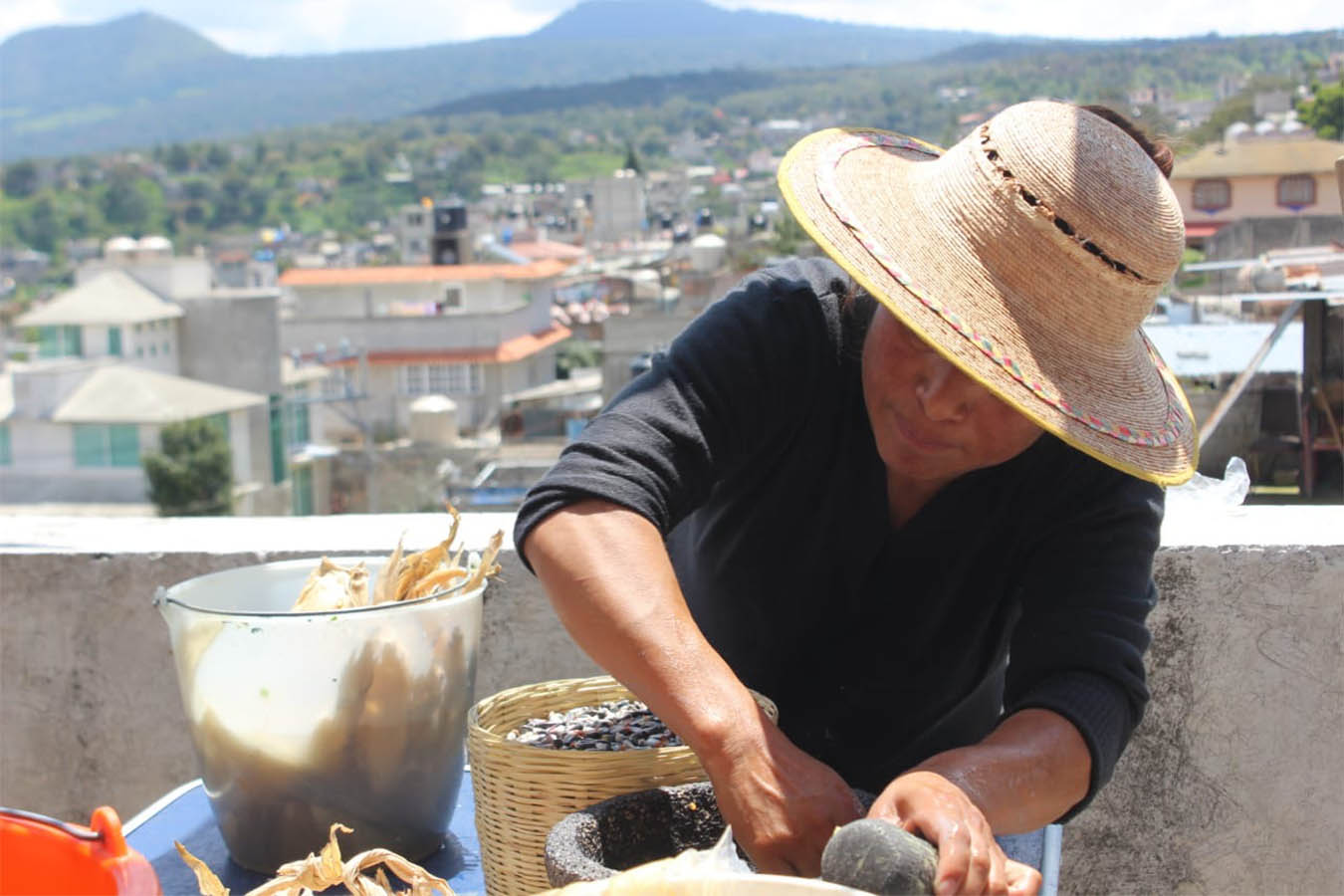
Tortillas, cottage cheese, potato, bean, and broad bean tlacoyos; gorditas de chicharrón (with pork tlalitos), pumpkin flower and quelites; sopes, bean, cactus, and pea tamales. In addition to bread, flan, hotcakes, and corn tamales are some of his recipes. And another colleague also helps them and gives them mole to sell.
“Everything we prepare is of the best possible quality. We do it with great pleasure. Not only do you take a tlacoyo, an omelette, or a tamale, but you are also giving hope, “she says.
There are days when they sell from one thousand to one thousand 500 pesos, of which they subtract the investment from what they buy extra and divide it among all. If there are few orders, the activities are rolled up so that all of them get some profit. Chío confesses that almost all their food purchases are made by women, and although they used to sell itinerantly through the Hospital area, now social networks help them to promote themselves and have more buyers.
They have adjusted prices and the response has been good because their clients know all the “work” behind them.
“For a tlacoyo to reach your hands, it implied not only the hours of transportation from Milpa Alta, but also that the corn would be harvested, put on the nixtamal, went to the mill … It was very nice, the women who follow us, who support us, are aware of the work and, of course, value it.
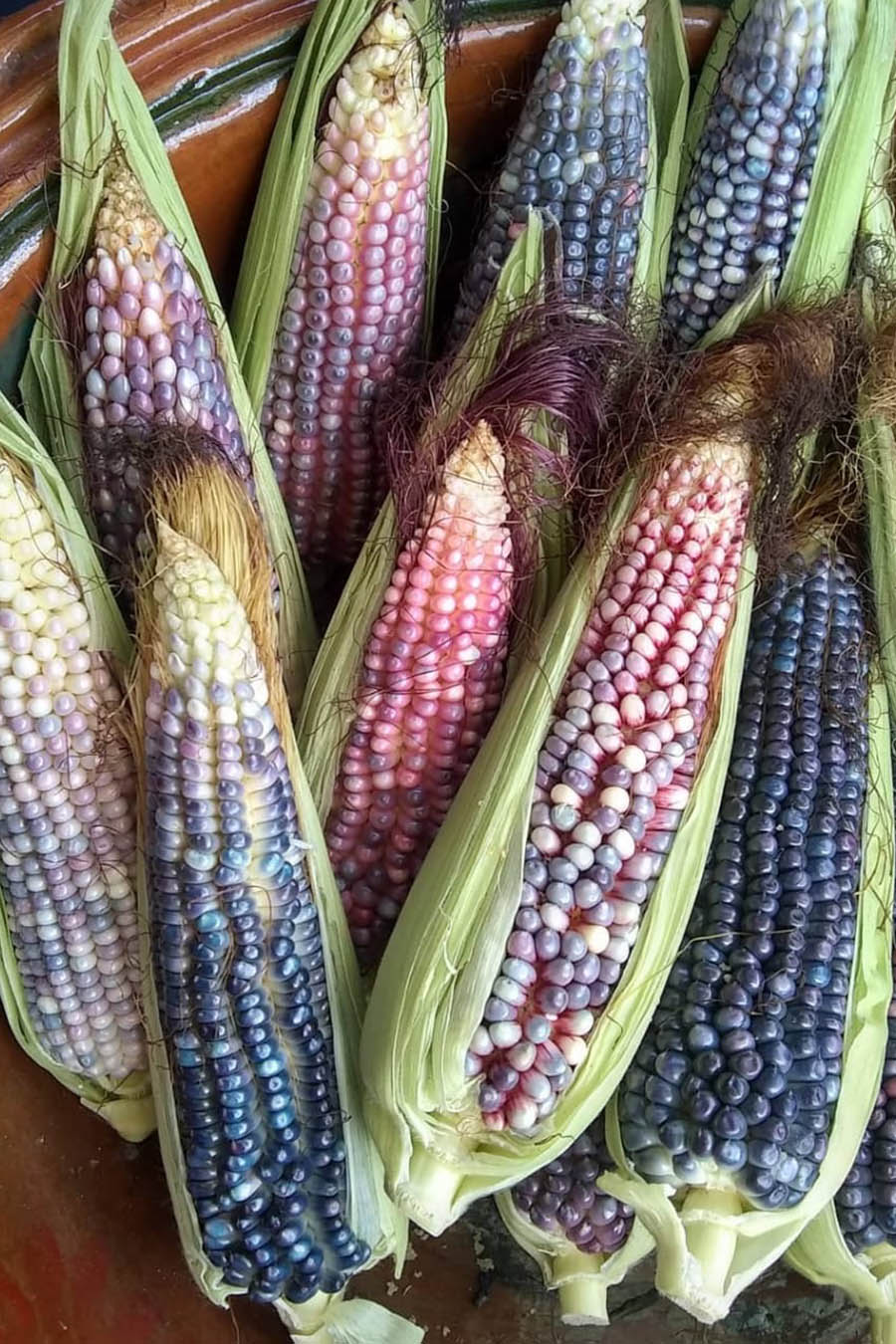
THE VALUABLE OPTION OF THE FIELD
In addition to the gender approach, talking about the periphery is approaching inequality.
“In these spaces, very different realities from the centralized ones are cooked. Here there is a lot of difficulty in accessing many things, health, education … I would like to tell people that those of us who live here are not poor because we want to. I’ve been here for 20 years and since I arrived I get up at four in the morning to go to work and study. And like me, many men and women get up at that time to go to sell their nopales or corn, to go to work in other spaces. It takes us two and a half to three hours to transport ourselves. We are very fighting people. And yes, there is everything, but it is not because they really want to, but because their accesses were also closed since they were little, ”she says.
She believes that racism and discrimination add to this inequity, especially for those who work in the fields.
“There is an imaginary in the band that they think that beans are for poor people, and what we do from this space is to claim that. No, beans and quelites are healthy foods and we can cook them. Many people have inherited these practices and this relationship with the land, with the sowing, the cultivation, and the knowledge of the rain.
“For us, it is a way of resisting, teaching the girls and boys here that if they cannot find a job, that if they cannot stay in a university, all is not lost: the countryside and the land are another option as valuable as having a university degree, ”she says.
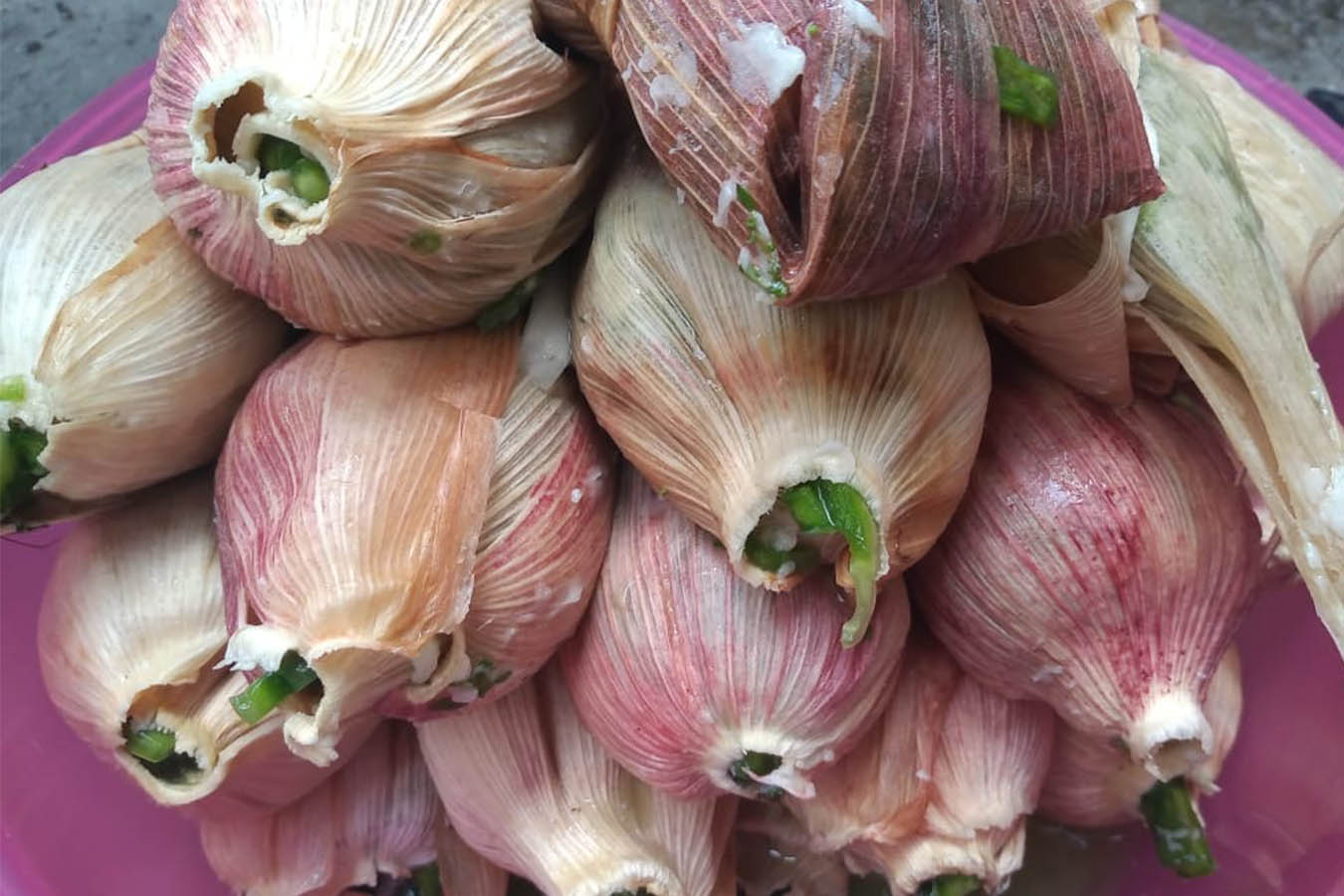
Chío believes that another problem is in the prices paid to the peasant. “I am going to talk about the privileged people who transgress the effort of the people and want to waste it. That is where the intermediaries who profit from the work of the people they plant get into. There is a relationship of discrimination, there is even an image of pity towards the peasant or peasant and no, we are people, like anyone else, we work with dignity and with our heads held high, we do our work with all our love and courage. I respect the land because it is what feeds us.
“Milpa Alta is part of Mexico City, but this is not the same city for everyone, that must be remembered.” The city of the avant-garde they used to say. Well no, this city is not only Roma, La Condesa, Cuauhtémoc … it is also Milpa Alta and Iztapalapa, and here there is injustice, limitations, barriers, oblivion, and silence, but we have a voice. Many women on the periphery have a voice. We have it and we have it strong ”, she says.
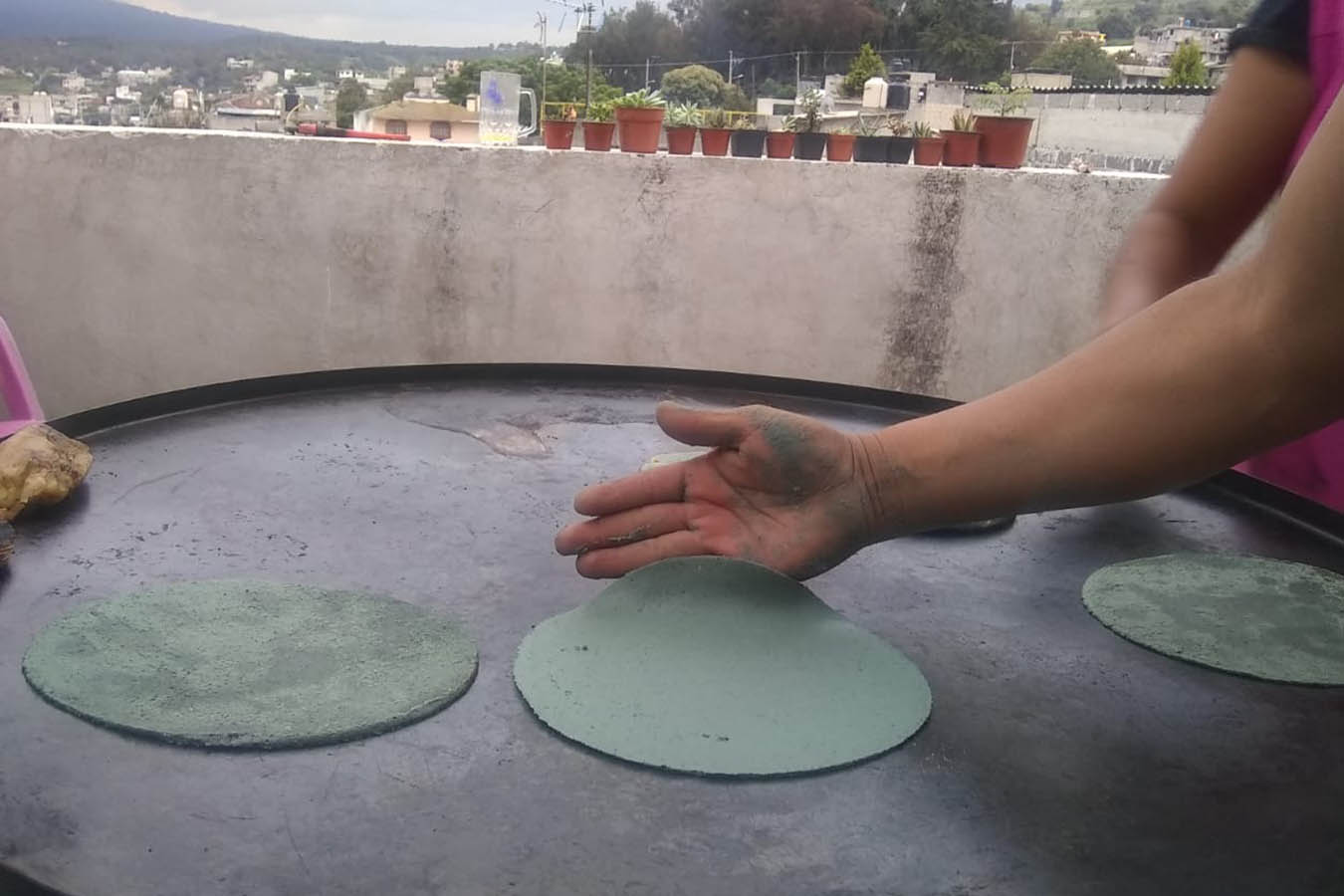
GROWING COLLECTIVITY
Women of the Earth, Women of the Periphery sow seeds of renewal: they hold meetings to exchange knowledge and wish that lawyers, writers, psychologists, and more want to teach them and barter jobs. The daughters and sons of these women are seeing how their mothers have taken other alternatives beyond violence: this opens up the panorama of being able to choose about their body and their emotions.
In addition to the requests, they request donations of tarps to cover the roof of their workshop, as well as a blackboard, a comal, and a gas tank to be able to connect them and stop breathing so much smoke. They also accept clothing, shoes, poetry books, self-help, novels, and more to encourage reading with each other, as well as notebooks, pens, and stationery.
“Our Guajiro dream is that there are many requests for more and more women to join this collective. So that we are no longer six but 12 and then 25. And that in addition to this, we will work with these support networks our axes of violence, because it will not help us that we have requests, that the companion take her 400 pesos a day If they have not worked on their esteem, if they have not worked on how to verbalize their emotions, on improving their security and the appropriation of their decisions.
“It is very important that they regain their being as women. We want this to grow a lot and that we all embrace each other. We want all those who buy from us and who support us as they can, feel part of this. It is a network and we hope that it will serve, I don’t know if it is an example, but that it will serve for other women to see that when we organize we can really do great things ”.
Another dream that this group has is to buy a little piece of land and build small rooms, and that women who are not from Milpa Alta and who do not have a home go there.
“Set up a commune of women to support us, and that if at any time one of them no longer wants to be there or wants to return to their original place, then another partner who lives a situation of violence already has space. That this land really belongs to everyone, that there is no owner ”, she concludes.
To place orders, contact them through their Instagram @mujer_esdelatierra
To translate video from a foreign language:
- Click on the “Settings” icon, select “Subtitles/CC,” and then click “Auto Translate.” A list of languages you can translate into will be displayed. Select “English.”
- You’ll see that the subtitles have automatically been translated into English. While everything won’t be translated with 100 percent accuracy, the whole idea is that you can at least get a rough translation so you can easily follow along
Source: fundaciontortilla.org, animal.mx



